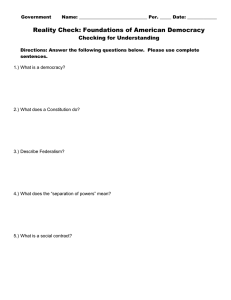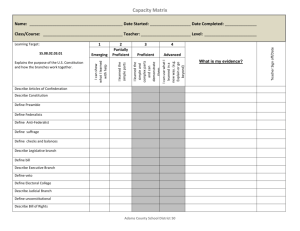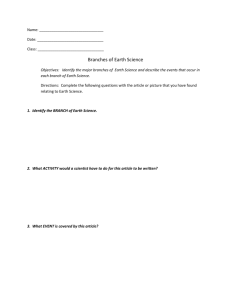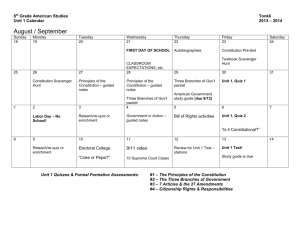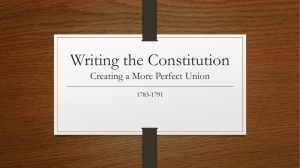AP Government Review Project
advertisement
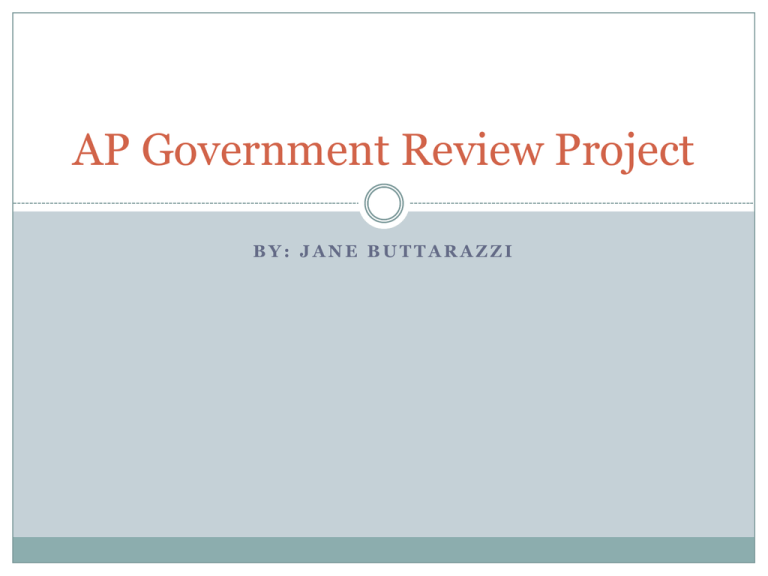
AP Government Review Project BY: JANE BUTTARAZZI Federalism vs. Antifederalism The Federalists approved of the Constitution saying: The separation of powers into three separate branches protected the rights of the people through checks and balances. None of the groups would effectively be able to assume control over another. Also said that a Bill of Rights could be a dangerous thing because they would not effectively be able to list every rights, therefore they could still violate the ones they left out. Did not want to ratify the Constitution saying that: It gave too much power to the national government at the expense of the states. There was no Bill of Rights yet. Congress would wield too much power due to the necessary and proper clause. The executive branch had too much power, mirroring the King of England too much. Federalist Papers The federalist papers are a series of 85 articles that promoted the ratification of the United States Constitution. Seventy-seven of the essays were published serially in The Independent Journal and The New York Packet between October 1787 and August 1788. James Madison, Alexander Hamilton, and John Jay were the authors of these papers, but it was kept a secret from the public at the time. Limited Government Limited government is a precept of Constitutionalism. It simply states that the government has restrictions on its power over the citizens. Limited government can range from large centralized to small decentralized government, as long as it lends some kind of restrictions to the government. In a limited government, there exist minimal governmental intervention in personal liberties and the economy. A democracy is an example of Limited Government, because it lends restrictions over each branch. The power is said to come from the people. Popular Sovereignty This is the principle that the power of the government is upkept by the will of the people, who are the source of all political power. It is closely associated with the philosophies of, Thomas Hobbes and John Locke. It can also be simply described as, the voice of the people. Separation of Powers This is a political doctrine which was laid out in the Constitution, explaining that there were to be three separate branches of government with certain checks over the other. The three branches created were: Judicial, Legislative, and Executive. This attempted to keep distinct order and prevent abuse of power from any sector of government. Specifically, the executive branch, because they were afraid of another English monarchy situation.
